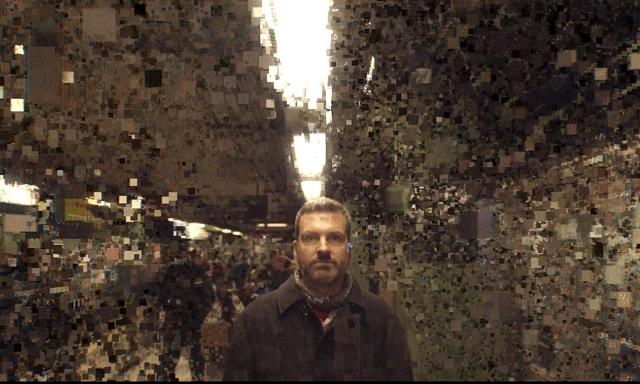Chances are you're reading this review, and maybe this entire site, because you want a break from the crushing reality of news today.
Boris Johnson has been elected by a tiny majority of people in England, and will likely drive Great Britain off a cliff if he gets his way. Donald Trump continues to soil himself in the White House. Vladimir Putin, meanwhile, pulls the strings and unravels decades of peaceful coexistence in Europe and further destabilises the global balance. Our planet, all the while, is slowly dying and we can't look up from our phones and computer screens to notice it.
Yeah, that's all a bit preachy - but, to be fair, that's how 'The Great Hack' presents itself. It's not subtle, it's not going for a nuanced point - if anything, it's trying to slap you and wake you up out of whatever stupor you've made for yourself. Directed by Karim Amer and Jehane Noujaim, who previously directed 'The Square', there is a sense when watching 'The Great Hack' that you're only getting one side and point-of-view in a wider story, rather than the full and complete telling.
This might simply be that the story is still unfolding. On the other hand, by the time this is all said and done, it'll probably too late to do anything about it. 'The Great Hack' smartly burrows down its narrative down to one person - Brittany Kaiser, a former executive at Cambridge Analytica, and was instrumental in helping to secure victory for Ted Cruz and, later, Donald Trump. They also appear to have worked on the Leave campaign for Brexit, although they deny this obvious fact incessantly.
The directors do a incredibly good job of driving home the point that the real villain in all of this, whether we like to admit it or not, is Facebook, and Big Data as it's referred to in the documentary. While there is a cast of unsavoury characters and political charlatans, it never really tries to unearth or explain who they are. People like Arron Banks are mentioned, but then ignored or glossed over. Nigel Farage features here and there, but is never explicitly implicated. Likewise, Steve Bannon crops up in a scene or two, and is revealed to be one of the founders of Cambridge Analytica.
Yet, for all of these sinister figures floating over it all, what 'The Great Hack' repeatedly tries to bring to the forefront is that data - your data, my data, everyone's data - was stolen and then used against us in order to help turn elections in the favour of people with ill designs on the world. As Brittany Kaiser explains, the data harvested from Facebook by Cambridge Analytica was then used to surgically pinpoint people - and were then bombarded with ads and political campaigning to illicit whatever outcome their benefactors desired.
In the case of the Trump election, this is what swung key states in his favour, with an accuracy that burrowed down to the very precinct level. What Kaiser reveals, along with Observer journalist Carole Caddwalladr, is that this didn't just appear out of the sky for Trump or Brexit. Instead, their propaganda machine - which is what this really is, a propaganda machine - was tested first in places like Kenya, Ghana, Trinidad & Tobago, and other countries before it was unleashed on the US and the UK.
For all of this unsettling and truly disturbing manipulation of the political process, 'The Great Hack' fails to examine the real perpetrators of it all. Namely, everyone with a Facebook account. We all gave our information happily and cheerfully to the likes of Facebook and Google, who then allowed it to be harvested - either knowingly or unknowingly - by sinister forces. That all this happened, and we either knew about it and didn't care, or didn't know and didn't want to know, would have made for a far more insightful documentary.
As it stands, 'The Great Hack' is an intriguing and interesting watch, and if you're looking for a good primer on how democracy is slowly dying in the Western world, you can't go wrong. But for a further, deeper analysis on the issue, you'll probably need to look elsewhere.









































































